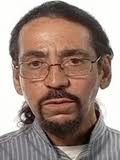Back in the mid-Nineties, devious right-wing activists at the Bradley Foundation, in Milwaukee, hit upon a “wedge” issue designed to wreck the alliance at the core of the Democratic
Party’s urban base. Blacks and public employee unions – particularly teachers – were the foundations of Democratic power in the cities. Aware that African
Americans revered education but were often in conflict with largely white teachers unions over issues of racism and community control, the Bradley gang, under president Michael Joyce, created out of whole cloth a “movement” for publicly-funded vouchers for private schools. No such Black community “demand” had ever existed, but well-aimed infusions of millions of dollars among opportunistic politicians like Cory Booker, a first term city councilman who aspired to become mayor of Newark, New Jersey, grafted Black faces onto a Hard Right corporate scheme to divide key progressive constituencies: Blacks and unions.

By the turn of the millennium, the Bradley outfit solidified its position as George W. Bush’s “favorite” foundation when it invented “faith-based initiatives” to funnel millions of public
dollars to churches to provide social services. Faith-based funding and private school vouchers comprised the totality of Bush’s first term outreach to Black America. Neither program drew masses of Blacks into the Republican Party – even the wealthy social engineers at Bradley can’t perform miracles. But Bradley and its far-right sister funders – the Walton and DeVos Family Foundations, Olin, Scaife, Freidman and other troglodytes – had succeeded in penetrating Black Democratic politics, where the real action would unfold. Cory Booker, Harold Ford, Jr., the 29-year-old who inherited his father’s congressional seat in Memphis, in 1996, and other hustlers were the “new Black leaders” ready to embrace “pro-business” solutions to inner city problems, said corporate media boosters. The Democratic Leadership Council, the party’s corporate money bagmen, launched a frenzied, and quite effective, recruitment campaign among Black office-holders and aspirants.
“Cory Booker and other hustlers were the ‘new Black leaders’ ready to embrace “pro-business” solutions to inner city problems, said corporate media boosters.”
This is the national stage onto which Barack Obama stepped with his U.S. Senate campaign, in 2003-2004, as the very embodiment of the “new” Black politician, full of phrases like “public-private partnerships” and other codes for corporate penetration of the public sphere. By this time, the wealthy foundations were directing much of their money and attention to hawking charter schools as the cure for what ails education in the inner cities. Not that the Waltons and Friedmans and Scaifes give a damn about ghetto kids, but because they understood that Black parents were desperate for anything that might save their children, and would be receptive when fellow Blacks made the pitch. From its inception, the purpose of the project was to drive a wedge between teachers unions and Black constituencies. In addition to being unencumbered by sticky constitutional considerations, charter schools are technically public schools, and African Americans remain broadly committed to the concept of public education. Most importantly, from the rich man’s point of view, charter schools are the gateway to corporate access to the public education purse, a “market” worth hundreds of billions a year in which the public takes all the risk – a capitalist’s paradise!
The Hard Right foundations now had even bigger company as boosters of charter schools: the institutional weight of Wall Street, huge hedge funds, and individual billionaires, all out to make a financial killing, knock off teachers unions, and mold the world views of new generations. After more than a decade of corporate cultivation of ambitious “new Black leaders,” a large cadre of business-friendly African American politicians was in place – including, by 2008, in the highest place of all. READ MORE HERE


